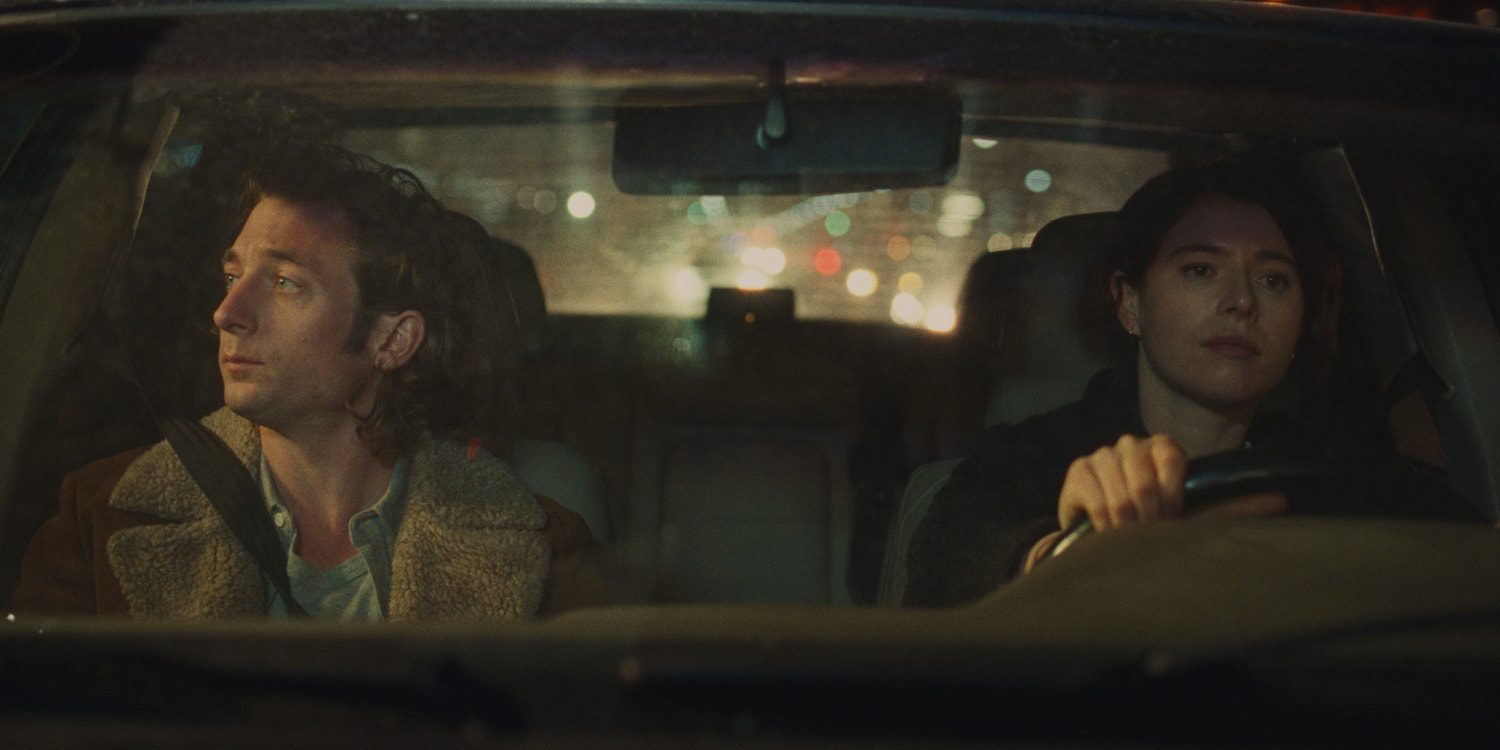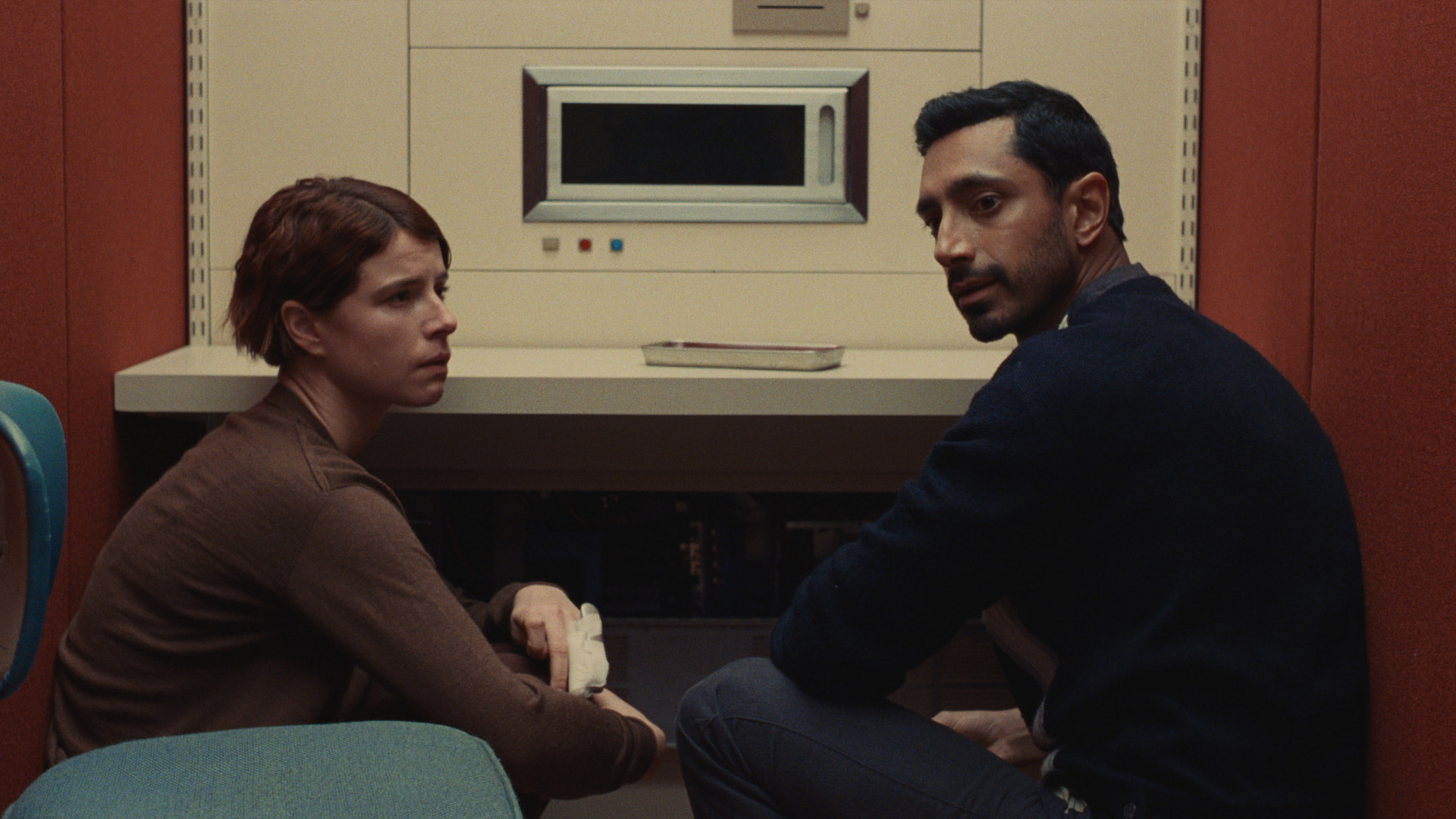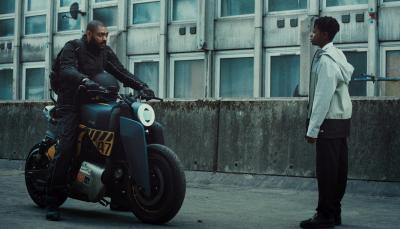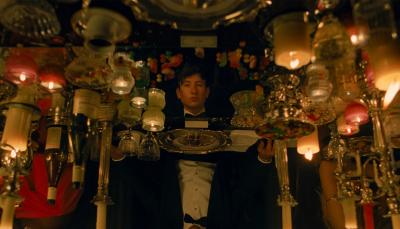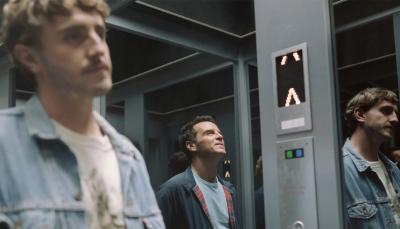'Fingernails' is a Better 'Black Mirror' Episode Than a Movie
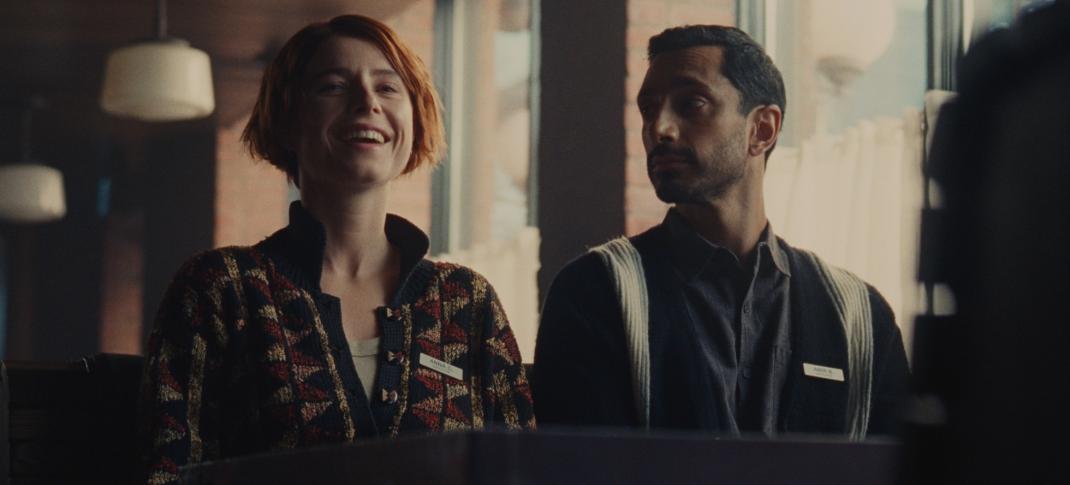
Jessie Buckley as Anna and Riz Ahmed as Amir in 'Fingernails'
Apple TV+
What if there existed a medical procedure that concretely proved we were in love with our partner? As long as we’re willing to give up an insignificant piece of keratin, a scientific device will determine if we were both in love, if only one of us was in love, or if neither of us were in love. How would a machine even calculate this, you’d wonder, when love is so incalculable when it transcends the boundaries of romantic monogamy every single moment?
Who even says that science’s definition of a complex emotional connection is the real definition of what love is; surely love is about the effort, the fluctuating feeling of stability, and about acknowledging all the problems that come with cohabitation? You’d likely think such a computation would be ill fit for humanity’s exploration and enjoyment of real, actual love. Congratulations, in two paragraphs, we’ve arrived at a conclusion that Fingernails takes two hours to reach.
In fairness, there’s nothing wrong with a romantic dramedy sticking to a simple, clear narrative brief. Anna (Jessie Buckley) has already had it proven she’s in love with her partner Ryan (Jeremy Allen White), and yet a creeping unease about the strength of their relationship leads her to covertly get a job at a Love Institute, led by Duncan (Luke Wilson, the only actor nailing the tone of what this film should be – silly and bitter). Here, she meets Amir (Riz Ahmed), who she works alongside to coach test-minded couples with various intimacy exercises designed to bring them closer together, but soon starts suspecting that their connection is undermining their own relationships at an alarming rate.
Fingernails doesn’t just suffer from a lack of imagination but the ineffective way it expresses it; we spend so much of the film treading water in trite, tiresome observations on modern romance that it’s unclear how Fingernails wants us to feel about the lens its characters see love through. The exercises led by Anna and Amir are clearly sanitized and corny – one blindfolded man has to find his partner in a crowded room solely by tracing her body odor, and tuneless joint-karaoke sessions are a regular occurrence – but Anna and Amir’s excitement at the equally shallow ideas they come up with to innovate the exercises is puzzling.
It’s as if the film is saying, “Obviously, these methods of getting closer to your partner aren’t effective. However, these other ones are.” In reality, love is so much more individualized, but the muted performances and mumbled confessional delivery numb all of the emotional reactivity that should come with it. This is likely the point that a society-wide complacency mixed with a hyper-analytic perspective on love has neutered its expansive possibilities. But it seems a little limited to answer our characters’ malaise with a solution that just affirms the reliability of heteronormative, monogamous commitment. There are other types of love out there, ones that defy the equally constrictive parameters of the unambitious, quirky dramedy.
Because of its dry humor and retro-futurist musings on technology trying to assess human messiness, Fingernails has been readily compared to Black Mirror and The Lobster – although an easier explanation might be because the lead actors are British and Irish, or the fact that Greek director and co-writer Christos Nikou worked with Yorgos Lanthimos earlier in his career.
Even though Fingernails is mostly an insipid and frustrating watch, to Nikou’s credit, he doesn’t push for a style that feels completely indebted to Lanthimos’ severe composition and clipped dialogue (cough, last year’s Karen Gillan-led Dual). Fingernails feels both a natural continuation of the gentle speculations of his debut drama Apples and the brand of modern love commentary from screenwriter Sam Steiner, the playwright behind Lemons, Lemons, Lemons. Buckley is as good as she always was playing this exact type of conflicted, slightly barbed young woman; Ahmed is a convincing, naturally charming, and the right-amount-of-wounded object of her affections. But while no fault lies with their pairing or chemistry, a work crush should feel much more exciting than it does here.
Fingernails gets its title from the Love Institute’s signature test, where the fingernail of each partner is painfully pulled off and placed inside the ‘70s-styled machine. A minor fault here reveals the film’s grander issues: only once do we see a fingernail being torn off, and even then, it’s a quick, fairly tame glimpse. For us to feel the character’s emotions being ripped free by this vulnerable, distressing process, we should also feel a regular visceral reaction to the dismemberment needed to make this happen. Fingernails is, again, too timid to get messy.
Comparisons to Black Mirror are unimaginative, but there’s one significant benefit to making Fingernails an episode of television – it would be an hour long. If you’re going to limit your treatise on love to material of this caliber, that’s all you should get before your audience goes cold on you.
Fingernails is open in limited release in U.S. theaters and is streaming on Apple TV+.

